It’s becoming clear that early filmmakers were not shying away from difficult topics. I’ve already watched movies that deal with abortion, sweatshops, organized crime, class warfare, and race. Poverty has been a common topic as well, and that’s the focus of Lois Weber’s Shoes. Movie studios were clearly onboard with the notion of cinema as an agent of societal change.
Lois Weber was one of the big name directors of the 1910s, and this is the third of her films that I’ve watched, and the first where she didn’t share directing duties with her husband. And while this has something of a reputation as a favorite among feminist viewers, I don’t think it’s as well-made as the last one I watched, Where Are My Children. Where that film was full of subtlety and subtext, here everything is hammered home with no attempt at nuance.
For example, at night, the grim hand of poverty reaches down to disturb her sleep. No really. Look!
That’s more than a little no the nose, but not much more than anything else in this movie, which is dripping with Message with a capital M.
The plot concerns Eva, a shop girl who works to support her family. Her father is lazy, and her mother preoccupied with running the house, so the entire burden falls upon her. Each day she walks to work in old shoes, with paper in the soles, that hurt her feet. She sees a new pair in a shop window, but hasn’t the $3.00 to purchase them. Each payday, she brings the money home to her mother, who always promises next week she can buy shoes, but is never able to spare the money.
Enter Cabaret Charlie. He’s a singer at a local night club, and he’s been buying Eva’s co-worker gifts in exchange for sex. He spots Eva and immediately assesses her situaion. He offers to buy her a pair of shoes, but she has to sleep with him to get them. When her old shoes finally break apart in the rain, Eva is left with no choice but to go to the night club and earn herself a pair of shoes, which she does. The film ends with her coming home with her new shoes to find out her father has landed a job, though one that likely won’t last beyond a week, at which time the cycle will begin anew.
The real villain here isn’t Cabaret Charlie, it’s that dad. His lackadaisical approach to job-hunting is the reason his family is in such dire financial straits, and even the job he finds at the end promises to be temporary. That whole side to the story is the best thing about the film, as it’s far more real than the episodes at the cabaret, or Eva’s footwear woes. The family isn’t destitute, and there’s no evil landlord lurking at the door. Instead, they are just another poor family with barely enough to scrape by, but without means to handle any needs beyond the most basic. Eva needs a pair of shoes, not a new house or a cure for a disease. That grounds everything in realism, even as other elements of the film work against that grounding.
This film has been restored, and is available on Blu-ray, and while I wish I owned a copy, I don’t, and instead watched on YouTube. You can, too!
If you want the Blu-ray, you can find it by clicking on the picture of it below. I get nothing if you do, so don’t think I’m trying to make a buck off of you. At best I can live vicariously through your purchase if you buy a copy and tell me in the comments below that you did so.
Next I’m watching The Vagabond [1916], directed by Charles Chaplin.

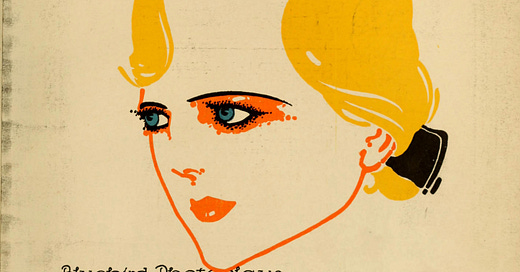





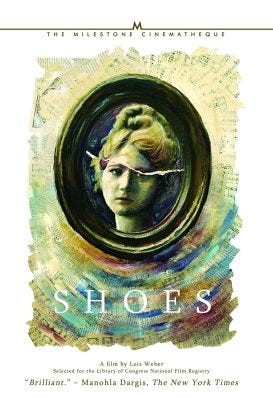

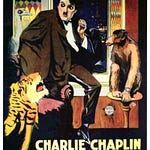
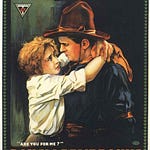
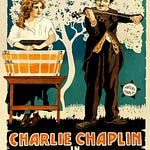

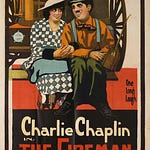

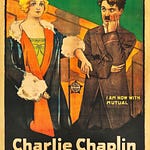
Share this post